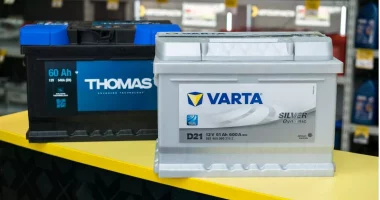- When it comes to worldwide growth and acceptance of electric bus technology, for Winnipeg-based NFI Group (NFI) it’s a matter of if, not when
- The company says it has overcome an early learning curve in 2018 and 2019, and is now at the point where demand is steadily increasing for its electric powered buses
- Public transit is seeing record investment in electric vehicles in Canada, the United States, U.K. and New Zealand
- The company expects up to 45% of its transit bus sales to be electric vehicles by 2025
- NFI Group is trading at $12.85 at 3:03 pm ET
When it comes to worldwide growth and acceptance of electric bus technology, for Winnipeg-based NFI Group (NFI) it’s a matter of if, not when.
The transit and motor coach bus manufacturer has supplied buses to customers across Canada, the United States, Europe and more.
“What we’ve seen historically is probably China was probably the fastest to adopter of battery buses and battery electric buses, and then followed quickly by Europe,” NFI Group Vice President of Strategy and Investor Relations Stephen King tells The Market Herald.
The company, which traces its routes back to 1930 and New Flyer Industries, really started producing its battery electric and battery fuel cell transit vehicles on a commercial capacity in 2018. It then started cross-training employees enabling it to use the same production line, whether a vehicle is powered by diesel, compressed natural gas (CNG) or electricity.
“The same people manufacturing all types of buses” says King.
“There was a bit of a learning curve in 2018 and 2019 but we’re now getting to the point where we’re seeing larger orders and regular volumes of electric buses going down those production lines.”
Now that the learning curve has been overcome, King says more markets are beginning to turn to the chargeable technology as they renew their transit bus fleets.
“In our markets where we operate, the U.K. is probably where we’re seeing the fastest adoption of battery electric buses,” says King.
“And then we’ve definitely seen a rapid advancement in North America, so both Canada and the U.S. seeing significant demand for battery electric buses.”
In 2018, when the company did a five-year projection, it estimated around 18 percent of demand from North America would be for battery electric or fuel cell electric vehicles by the end of that period.
“In 2022, it’s about 50%, that five-year outlook. So we’ve definitely seen a rapid increase for battery electric buses,” says King, estimating around 45% of the company’s sales could be made up of electric vehicles by 2025.
“We are getting closer to parity, on the total cost of ownership. The upfront investment is obviously higher, with a battery electric or a fuel cell electric vehicle, but that long-term cost and long-term operational cost, now we feel like we’re getting to that point where it’s at parity with other vehicles.”
Record-high fuel prices across the globe are only helping transit agencies to see the advantages over their conventional diesel fleets, levelling the playing field even more.
“Pretty much around the world we’re seeing that demand continue to grow. It’ll be a little bit slower in the motor coach and some of the private operators. But in public transit, there’s record investments in Canada, the U.S., U.K., New Zealand, all these major markets are putting billions of dollars into electrifying their public transit systems,” says King.
“There was always a question of ‘is the future electric?’ I think now it’s a question of when, not if. I think everyone is on board that we’re going electric.”
NFI Group is trading at $12.85 at 3:03 pm ET.



